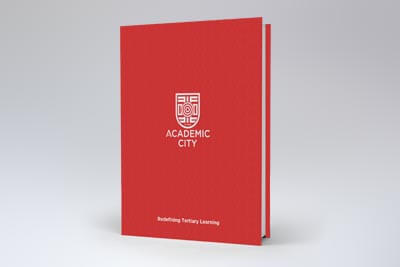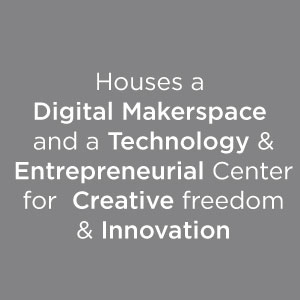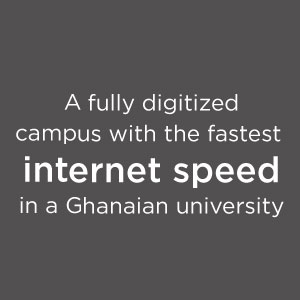

BSc Electronics & Communication Engineering
The Backbone of Digital Technology
Since the post-world war years, Electronics and Communications Engineering programs have made a significant foray into interdisciplinary fields of studies combining electronics, communications, computer science and engineering, robotics, aeronautics and astronautics, healthcare engineering, and artificial intelligence.
Electronics and communications engineering programs around the world continue to evolve, driven by technological advancements in recent years, advances in satellite communications and space technologies, mobile computing and computations.
The US Bureau of Labour Statistics group communications engineering and electronics engineering into one single bucket and projects a 6% growth in this space. The impending growth in this space represents significant opportunities for electronics and communications engineering students as they prepare for the world of work.
BSc Electronics and Communication Engineering at ACity
Our Electronics and Communication Engineering degree program is developed to provide students with a broad foundation in contemporary practices, strong liberal arts to enhance critical reasoning and communications skills; strong foundations for advanced studies and industrial success in a broad range of industries.
The aim of BSc Electronics and Communication Engineering program is to provide in-depth knowledge of modern design tools to solve real-life problems in the field of Electronics and Communication Engineering, to develop critical thinking, ethical research as well as employability skills in students so as to meet dynamic educational and industrial needs for the betterment of society.
January 2026 Intake Is Open

Apply Now
Start your journey towards higher education by submitting your online application today! Click the 'Apply Now' button below and fill out the required information. Apply now and take the first step towards realizing your academic goals.
Top Careers In Electronics and Communication Engineering

A Bachelor's degree in Electronics and Communication Engineering means a career in any of these:
| Audio Engineer - Electricity and Electronics | Research Engineer - Nanoelectronics |
| Analogue Amplifier Design Engineer | Broadcasting Professional Engineer |
| Electronics Research Engineer | Radio Research Engineer |
| Electronics Test Engineer | Electronics Engineer |
| Antenna Engineer | Avionics Engineer |
Entry Requirements
Minimum C6 in 6 subjects including 3 core subjects (English, Mathematics, Integrated/General Science) and 3 elective subjects. (Physics, Elective Mathematics + Chemistry OR any other elective relevant to the chosen Program)
Minimum D or a pass in 6 subjects including 3 core subjects (English, Mathematics, Integrated/General Science) and 3 elective subjects. (Physics, Elective Mathematics + Chemistry OR any other elective relevant to the chosen Program)
Minimum of 5 credit passes in the IGCSE/O-Levels (Mathematics and English mandatory) and 3 passes in the A-Levels. (Elective/Add/Further Mathematics and Physics mandatory).
Minimum of 5 credit passes in the IGCSE/O-Levels (Mathematics and English mandatory) and a minimum score of 4 points in 3 Higher Level (HL) subjects. (Elective/Add/Further Mathematics and Physics mandatory)
Minimum of 50% overall average pass. (subject to approval NAB) Mathematics, English and Physics mandatory
Minimum GPA of 3.0 (Mathematics, English and Physics mandatory)

Want To Know
More Information
Get the course pdf or offline application form below
Course Outline
Communication Skills
French Language
Fundamentals of Innovation and Entrepreneurship (FIE) Seminar I
Introduction to Engineering
Introduction to Programming with Python
Physical Sciences
Pre-Calculus (with MATLAB)
Technology and Society
Analytic Geometry and Calculus I (with MATLAB)
Basic Electronics
Fundamentals of Innovation and Entrepreneurship (FIE) Seminar II
Introduction to Multidisciplinary Design
Logic and Critical Thinking
Programming in C
Sensors, Measurements and Instrumentation
Text and Meaning
Analog Communication
Analytic Geometry and Calculus II (with MATLAB)
Circuit Theory
Electromagnetic Fields & Waves Theory
Fundamentals of Innovation and Entrepreneurship I
Introduction to Material Science and Engineering
Leadership Seminar I
African Studies
Applied Linear Algebra (with MATLAB)
Data Communication and Computer Networks
Electrical Machines
Fundamentals of Innovation and Entrepreneurship II
Probability, Statistics and Reliability (with MATLAB)
Solid State Electronic Devices
Differential Equations(with MATLAB)
Digital Communication
Digital Systems Design
Leadership Seminar II
Numerical Methods (with MATLAB)
Signals and Systems
Systems Dynamics
Antennas and Wave Propagation
Automatic Control Systems
Digital Signal Processing
Industry Internship
Microprocessors & Microcontrollers
Project Management, Engineering Economics and Risk Analysis
Telecommunications Switching and Networks
Advanced Digital Signal Processing
Microwave Engineering
Mobile Communication
Optical Communication
Project Phase I
Remote Sensing
Environmental Science and Engineering
Professional Ethics and Values
Project Phase II
Real-Time Digital Signal Processing
Satellite Communication
Telecommunication System Modelling and Simulation











